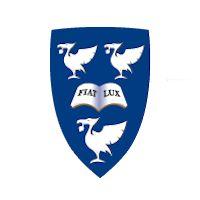Law PhD
Our Department hosts eight Research Clusters, which are crucial in supporting the building of external partnerships, providing a platform for knowledge exchange, and coordinating timely responses to current legal and policy developments.
The Charity Law and Policy Unit (CLPU) carries out research into the legal issues facing charities and third sector organisations, often with a strong empirical element and leading to proposals for legal and regulatory reform, which have made important contributions to policy change in this field. Examples are the unit's path-breaking work on charity mergers, disputes in the charitable sector, the legal structure of charities, housing the mentally vulnerable, and charities and equality legislation.
International Criminal Law (ICL) has become one of the most prominent aspects of international law. The International Criminal Court and other tribunals have captured the imagination of the public, and international criminal justice has become a much commented-upon scholarly topic. However, more recently, the engagement with international criminal law has also been marked by a sense of disillusionment. Increasingly, scholars, activists and practitioners are drawing attention to international criminal law’s biases and blind spots, as well as its role in perpetuating unequal global power relations.
EU Law@Liverpool has significant research strength and plays a key role in shaping academic research, public information and policy development in the context of the Brexit debate. The Unit was a leading contributor of both oral and written evidence to the UK’s Balance of Competence Review on the relationship between the UK and the EU, organises academic, policymaker and public events on the UK’s membership of the Union, and contributes to academic journals, public blogs and policy briefings on Brexit. Information is disseminated through extensive media (BBC Radio, Sunday Politics) social media and YouTube engagement (gaining millions of views online before and after the referendum). We have a dedicated website which details our work in relation to the UK’s withdrawal from the European Union.
The European Children's Rights Unit (ECRU) works alongside many external members from a range of academic, non-governmental and other research-driven organisations, to pursue a participatory, interdisciplinary research ethos into children's rights. Its focus is on the European (including comparative) dimension and is particularly distinctive in exploring the interplay between different levels of governance and the impact of those interactions on children's rights.
The Health Law and Regulation Unit (HLARU) supports research and knowledge exchange activities in the field of health law and regulation. HLARU brings together a range of experts pursuing cutting-edge, impactful research into current legal, regulatory and policy dilemmas in healthcare. Our members’ expertise encompasses a wide range of health law topics, including medical malpractice, patient capacity and consent, reproduction, professional regulation, children and medicine, research ethics, and mental health. We are committed to conducting world-leading legal and policy research which will make a significant original contribution to health law scholarship and enhance the quality of public debate in a particularly controversial field.
The core objective of LEGU members is to conduct cutting-edge and internationally recognised research in economic governance. Globalisation and the rise of neo-liberal economic and political principles have resulted in a new and complex set of relationships between the state, society and markets. This new governance landscape provides researchers fertile ground to explore new phenomena.
The Law & Non-Communicable Diseases Unit (or Law & NCD Unit) was set up in January 2015 to conduct research into how law can be used to prevent non-communicable diseases, and more specifically on how effective, evidence-based policy interventions can be designed to regulate the tobacco, alcohol and food industries to promote better health. The Unit comprises legal academics who collectively specialise in a wide range of sub-disciplines, including international human rights and children’s rights, public health, trade and investment, consumer, food and advertising law. We embrace a multi-disciplinary, multi-partner approach to our work, and as such have forged sustained partnerships with the World Health Organization, its regional and country offices and other UN agencies, the European Commission, as well as many governments and non-governmental organisations worldwide.
Intakes
- Sep
Application Processing Time in Days: 40
Minimum English Language Requirements
| English Level Description | IELTS (1.0 -9.0) | TOEFL IBT (0-120) | TOEFL CBT (0-300) | PTE (10-90) | |
|---|---|---|---|---|---|
| Expert | 9 | 120 | 297-300 | 86-90 | |
| Very Good | 8.5 | 115-119 | 280-293 | 83-86 | |
| Very Good | 8 | 110-114 | 270-280 | 79-83 | |
| Good | 7.5 | 102-109 | 253-267 | 73-79 | |
| Good | 7 | 94-101 | 240-253 | 65-73 | |
| Competent | 6.5 | 79-93 | 213-233 | 58-65 | |
| Competent | 6 | 60-78 | 170-210 | 50-58 | |
| Modest | 5.5 | 46-59 | 133-210 | 43-50 | |
| Modest | 5 | 35-45 | 107-133 | 36-43 | |
| Limited | 4 | 32-34 | 97-103 | 30-36 | |
| Extremely Limited | < 4 | < 31 | < 93 | < 30 |
Job Opportunity Potential
Open to graduates from any discipline, our Master of International Business (MSc) course is a specialist award for career entry or career development that will prepare you to successfully integrate with businesses operating an international platform.
The purpose of this degree is to allow you to hone your professional, analytical and personal capabilities in order to develop a global perspective for business. This will be accomplished by developing the agile, curious, resilient and innovative mindsets that are necessary to cope with the levels of uncertainty, complexity, ambiguity and risk that are so evident in a rapidly changing world.
At every juncture, you will be encouraged to consider how you can add value to business processes while being mindful of the ethical, social and cultural responsibilities and challenges facing all organisations.
Enhance your employability
Being employable is about attitudes and skills, confidence and drive – it means being able to choose a career, apply effectively and be successful. As the world of work changes and organisations evolve, employers are increasingly searching for graduates not just with a degree but with the right blend of skills, knowledge and experience – graduates who can make a difference in any situation. That’s why at Liverpool we are focused on developing your employability while you are studying in preparation for life after graduation.
Services and resources
The University of Liverpool Careers & Employability Service supports students and graduates across all disciplines. Each academic department has a dedicated careers adviser, and as a student, you can access our up-to-date resources in person via our Careers Resource Centre or on our website.
Resources and services available to you include:
A comprehensive programme of careers related seminars, workshops, fairs and recruitment events
Support in finding work placements and internships in the UK and overseas
Access to a wide range of job opportunities
Opportunities to meet organisations keen to recruit Liverpool students and graduates
Support from our team of professional careers advisers.
Not that we’re complacent, we are constantly looking to improve our services and develop our expertise to support students.
Wanted: work experience
A good degree from the University of Liverpool will open a lot of doors, but these days employers are interested in graduates who can demonstrate more than just an outstanding academic record. We can help you find opportunities specifically designed for university students.
These include:
Part-time jobs
Paid Summer and Easter internships
Year in industry placements.
Talent Sourcing: Graduate Recruitment
As a member of the Russell Group, studying at Liverpool gives you direct access to an extensive range of recruiters operating in all sectors of the economy, and in companies ranging from SMEs (Small and Medium Enterprises) to international corporations.
Employers value our solid academic reputation and want to meet our students. At Liverpool we have a dedicated Employer Engagement Team who promote Liverpool students and graduates directly to some of the world’s leading recruiters.
Last year, around 300 employers visited campus to recruit Liverpool students, and we advertised thousands of placement, internship and graduate vacancies on the Careers & Employability Service website.
Careers & Employability Service
As one of the UK’s leading careers services we offer high-quality employability support during and after your time studying with us, blending advice, guidance and training.
Through a range of career management inputs, personal and professional development and access to industry experts and speakers, our aim is to match your needs and ambitions as they develop.
We can help you with:
Career planning
Understanding the job market
Making effective applications through CVs, letters and application forms
Preparing for and attending job interviews
Performing effectively at Assessment Centres
Strengthening your networking skills, including digital networking Industry networking opportunities.
As well as face-to-face guidance and on-site sessions we also offer online support, webinars and guidance. All our activities are supported by a state-of-the-art interactive website, CareerHub.
You will also benefit from our close links with industry. All our career and employability development activities are designed with considerable input from employers, and we hold key networking events throughout the year. In recent years our Careers & Employability Service has won several prestigious national awards including the AGCAS International Award for demonstrating an outstanding commitment and contribution to working with students, relevant employers and promoting internationalisation.
PSW Opportunity
- 2 Years of PSW
Admission Requirement / Eligibility Criteria
- Course Type: Full Time
- Course Level: Doctoral Degree/PhD
- Duration: 04 Year
-
Total Tuition Fee:
97000 GBP
Annual Cost of Living: 9207 GBP
Application Fee: N/A

